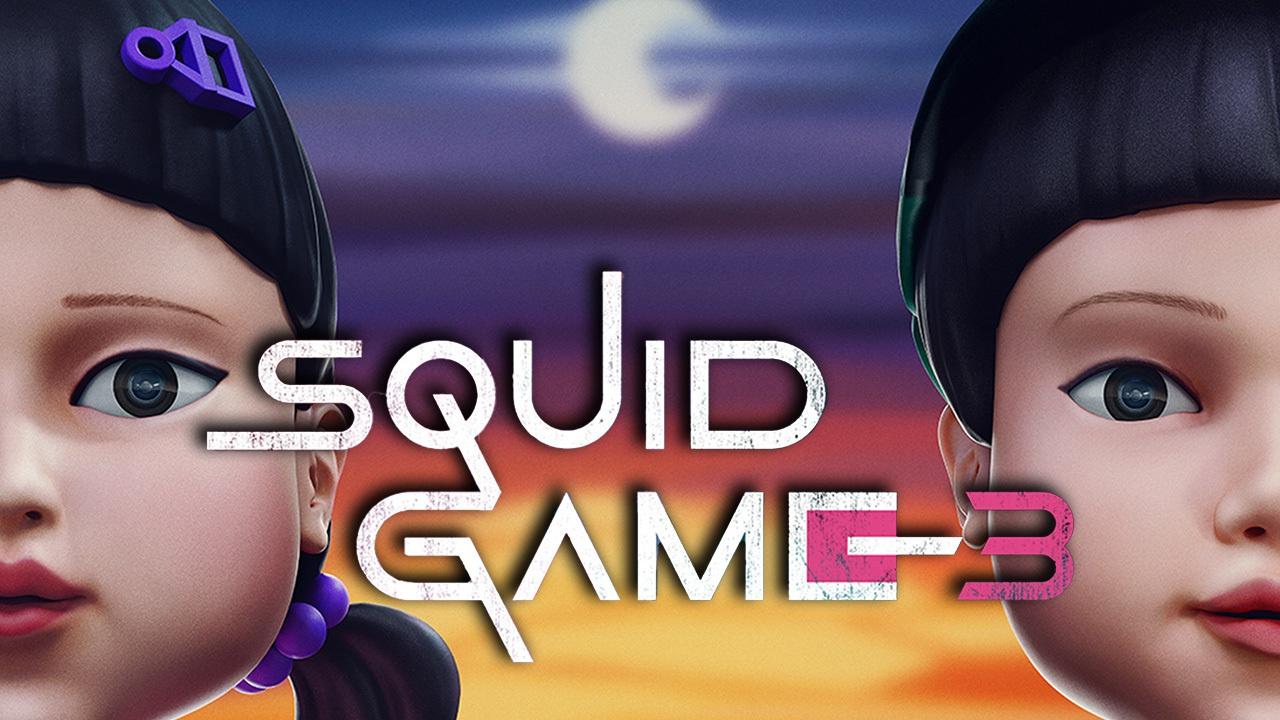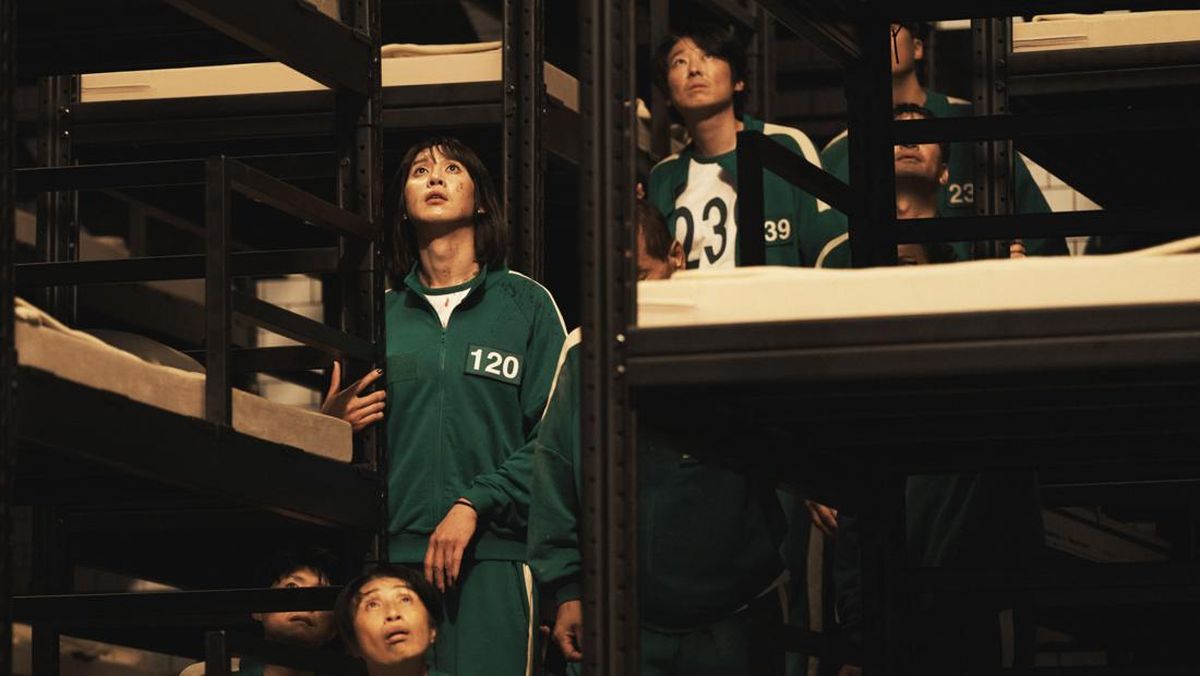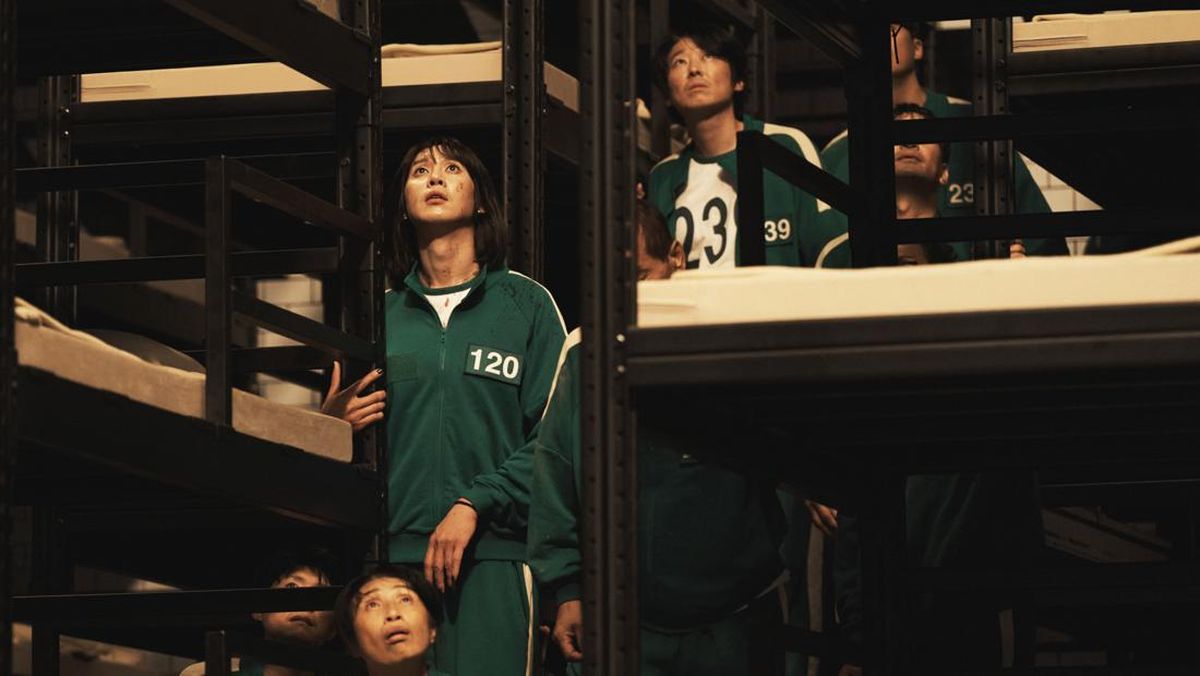Squid Game Histoire Vraie? The hit Netflix series sparked intense debate: is it pure fiction, or does it reflect unsettling realities? This exploration delves into the real-world parallels inspiring the show’s brutal games and desperate characters. We’ll examine the socioeconomic factors driving individuals to such extremes, exploring the dark side of child’s play and the ethical dilemmas presented by high-stakes survival scenarios.
So you’re wondering about “Squid Game histoire vraie”? While the show’s fictional, its themes of desperation resonate. Think about the scale – imagine a spectacle like the incredible china new year drone show 2035 , but instead of celebration, it’s a deadly game. That level of coordinated spectacle, though for vastly different purposes, highlights the potential for both breathtaking displays and horrifying exploitation, mirroring the show’s core message.
Ultimately, we aim to understand the show’s shocking resonance with global audiences.
From the crushing weight of debt to the exploitative nature of certain games and gambling, we’ll uncover the surprising links between the fictional world of Squid Game and the harsh realities faced by many around the globe. We’ll analyze the show’s depiction of poverty and wealth, and how these stark contrasts fuel the desperation shown on screen. We’ll also consider the show’s impact on popular culture and its lasting influence.
The Inspiration Behind “Squid Game”: Real-World Parallels
The dystopian world of “Squid Game” resonates with viewers because it reflects, albeit in an exaggerated form, harsh realities faced by many globally. The show’s brutal games are a metaphor for the desperate measures individuals take when confronted with crippling debt and systemic inequality. This section will explore the real-world inspirations behind the show’s premise, examining the parallels between the fictional games and the dangerous situations people find themselves in.
Real-Life Desperation and Societal Inequalities
The show highlights the desperation caused by crushing debt and lack of opportunity. Many viewers connect with the characters’ struggles, seeing reflections of their own financial anxieties or the hardships faced by friends and family. Examples include individuals driven to extreme measures by predatory lending practices, the lack of social safety nets, and the ever-widening gap between the rich and the poor.
The series powerfully portrays the pressure to succeed in a hyper-competitive society, a pressure that can lead to mental health issues and risky behaviors.
Historical Context of Debt Crises
Throughout history, debt crises have disproportionately impacted vulnerable populations. The Great Depression, for instance, saw millions plunged into poverty, leading to social unrest and desperation. Similarly, modern-day economic downturns often leave individuals with little recourse but to take drastic steps to survive. The show taps into this historical context, demonstrating how societal structures can fail to protect those most at risk.
Exploitative Games and Gambling

The games in “Squid Game” echo the exploitative nature of certain forms of gambling and high-stakes competitions. Throughout history, and in many cultures today, individuals have been lured into dangerous games of chance with promises of wealth, only to find themselves trapped in cycles of debt and despair. This mirrors the manipulative nature of the games in the show, where participants are offered a seemingly easy path to riches, only to face life-threatening consequences.
Comparative Table: Fictional and Real-World Dangerous Activities
| Game Name | Risk Level | Motivation | Outcome |
|---|---|---|---|
| Red Light, Green Light | High (death) | Massive debt relief | Elimination or significant reward |
| Tug-of-War | High (death) | Survival | Elimination or survival |
| Real-life illegal street racing | High (injury, death) | Money, thrill-seeking | Injury, death, arrest |
| High-stakes gambling | High (financial ruin, addiction) | Financial gain | Debt, addiction, or potential financial gain |
Child’s Games and Their Darker Sides
The seemingly innocent children’s games featured in “Squid Game” are twisted into deadly competitions, highlighting the potential for harm when play becomes a matter of life or death. This section explores the contrast between the playful aspects of traditional children’s games and their deadly counterparts in the show, examining the psychological manipulation involved in both.
Traditional Children’s Games and Potential for Harm
Many traditional children’s games, while generally harmless, can become dangerous if taken to extremes. For example, games involving running, climbing, or physical challenges can result in injuries if safety precautions are ignored or if children are pushed beyond their limits. The competitive nature of some games can also lead to bullying, aggression, and exclusion.
Playful Aspects vs. Deadly Consequences
The show contrasts the carefree nature of childhood games with the brutal reality of the “Squid Game” competition. The familiar rules and settings of the games create a sense of false security, making the deadly consequences all the more shocking. This juxtaposition underscores the show’s commentary on the manipulation of innocence and the dangers of unchecked competition.
Psychological Manipulation in Games
Both traditional children’s games and the “Squid Game” competitions employ psychological manipulation. In traditional games, this might involve subtle forms of persuasion or pressure to conform. In “Squid Game,” the manipulation is far more overt, using threats, coercion, and psychological warfare to control the players. The show illustrates how the same principles of manipulation can be applied to vastly different contexts, with devastating consequences.
Twisting Harmless Games into Life-Threatening Scenarios
- Red Light, Green Light: A simple childhood game transformed into a deadly test of obedience and reflexes.
- Tug-of-War: A classic team game where losing means death.
- Marbles: A seemingly innocent game of skill becomes a high-stakes gamble for survival.
- Honeycomb Tteokbokki: A simple childhood treat becomes a test of precision and patience, with failure resulting in death.
The Socioeconomic Context of “Squid Game”
The desperate situations faced by the characters in “Squid Game” are deeply rooted in socioeconomic factors. This section will delve into the key elements that contribute to the desperation portrayed, emphasizing the role of wealth disparity and systemic inequality.
Key Socioeconomic Factors Contributing to Desperation, Squid game histoire vraie
High levels of debt, unemployment, and lack of social support are key factors driving characters to participate in the deadly games. The show depicts a society where the gap between the wealthy elite and the struggling masses is vast, leaving many with little hope of improving their circumstances through legitimate means. The characters’ desperation reflects the harsh realities of economic hardship and social injustice.
Wealth Disparity and Systemic Inequality
The stark contrast between the opulent lifestyles of the VIPs and the impoverished lives of the players underscores the systemic inequality at the heart of the show. This inequality isn’t merely a backdrop; it’s the driving force behind the entire narrative. The show suggests that such extreme disparities can create a climate where desperate individuals are willing to risk their lives for a chance at a better future.
Impact of Economic Hardship on Individual Choices
Economic hardship significantly impacts individual choices and behaviors. Faced with insurmountable debt and the lack of opportunities, the characters are forced to make difficult decisions, even if those decisions involve putting their lives at risk. The show compellingly illustrates how economic desperation can override rational judgment and lead to extreme actions.
Visual Representation of Poverty and Wealth

The show visually contrasts the stark, bleak environments of the impoverished players with the lavish, luxurious setting of the VIPs’ viewing area. The drab, cramped living spaces of the participants highlight their poverty, while the opulent decor and extravagant displays of wealth enjoyed by the VIPs emphasize the vast chasm between the two groups. This visual contrast reinforces the themes of inequality and desperation that drive the narrative.
Moral and Ethical Dilemmas in “Squid Game”
The show presents viewers with a series of complex moral and ethical dilemmas, forcing them to confront difficult choices and consider their own moral compass. This section will analyze the moral ambiguities faced by the characters and the ethical implications of their actions.
Moral Ambiguities and Ethical Dilemmas
The characters frequently face situations where they must choose between survival and morality. The high-stakes nature of the games forces them to make difficult decisions, often involving betrayal, cooperation, and compromise. These choices highlight the gray areas of morality and the complexities of human behavior under pressure.
Comparing Choices to Real-World Moral Quandaries
The ethical dilemmas presented in “Squid Game” resonate with real-world moral quandaries. For example, the characters’ decisions to cooperate or betray one another mirror the challenges faced by individuals in situations of conflict or scarcity. The show prompts viewers to consider how they would react in similar circumstances, challenging their own moral frameworks.
Themes of Survival, Cooperation, and Betrayal
The themes of survival, cooperation, and betrayal are central to the narrative. The players must constantly navigate the tension between individual survival and the potential benefits of collaboration. The show explores the complexities of human relationships under pressure, demonstrating how even seemingly strong bonds can be broken in the face of extreme circumstances.
Challenging Viewers’ Moral Compass
“Squid Game” challenges viewers to confront their own moral compass by presenting them with scenarios where survival necessitates difficult ethical choices. The show forces audiences to consider their own values and priorities, prompting introspection on how they would respond in similar high-stakes situations. The lack of easy answers encourages critical thinking about morality and ethics.
The Cultural Impact and Global Reception of “Squid Game”

The global phenomenon of “Squid Game” has had a significant cultural impact, influencing fashion, social media trends, and popular culture. This section explores the reasons behind its widespread popularity and the diverse reactions to its themes and imagery.
Global Phenomenon and Cultural Impact
The show’s success is undeniable. It quickly became a global sensation, breaking viewership records on Netflix and sparking widespread discussions on social media. Its impact extends beyond mere entertainment, influencing fashion trends (with recreations of the show’s iconic tracksuits and costumes), social media challenges (often recreating scenes from the show), and even inspiring real-world adaptations and parodies.
Influence on Popular Culture, Fashion, and Social Media
The show’s imagery, characters, and themes have become instantly recognizable globally. The distinctive green tracksuits, the iconic dalgona candy challenge, and the unsettlingly familiar children’s games have permeated popular culture, appearing in countless memes, social media posts, and online discussions. This widespread cultural appropriation demonstrates the show’s profound influence on contemporary trends.
So you’re curious about “Squid Game histoire vraie”? While the show’s fictional, the desperation it portrays is sadly real for many. Think about the sheer scale of coordinated movement – it makes you appreciate the incredible technological feat of a chinese dragon drone show , where hundreds of drones move in perfect unison. That level of precision mirrors the intense planning and execution in “Squid Game,” even if one’s a deadly game and the other’s a dazzling spectacle.
Reasons Behind Widespread Popularity and Global Appeal
Several factors contribute to “Squid Game’s” global appeal. Its exploration of universal themes such as desperation, inequality, and the struggle for survival resonates with audiences worldwide. The show’s blend of suspense, violence, and social commentary makes it compelling viewing, while its accessible premise and engaging characters further broaden its appeal.
So you’re wondering about “squid game histoire vraie,” right? It’s a popular question, and naturally, people want to know if the brutal games depicted are based on real-life events. To get some perspective, check out this resource: squid game histoire vraie. It dives into the truth behind the show’s inspiration and explores whether any similar situations exist.
Ultimately, understanding the “squid game histoire vraie” helps us appreciate the show’s commentary on societal issues.
Reactions of Different Cultural Groups
While largely positive, the show’s reception has varied across different cultural groups. Some viewers have praised its social commentary and its unflinching portrayal of societal inequalities, while others have criticized its violence and its potential to glorify dangerous behavior. The show’s impact on cultural conversations is significant, sparking debates about social justice, economic inequality, and the human cost of unchecked capitalism, differing interpretations depending on individual perspectives and cultural backgrounds.
Concluding Remarks: Squid Game Histoire Vraie
Squid Game Histoire Vraie isn’t just a thrilling show; it’s a chilling reflection of societal issues. While the games themselves are fictional, the desperation, inequality, and ethical dilemmas they represent are painfully real. The show’s global success highlights a shared unease with the systems that allow such disparities to exist. By examining the real-world parallels, we can better understand the show’s impact and perhaps, inspire change.
Popular Questions
Was Squid Game inspired by a specific real-life event?
While not based on one single event, the show draws inspiration from various real-world situations, including debt crises and exploitative games.
Are the games in Squid Game actually played anywhere in the world?
No, the games depicted are fictional, but they are inspired by variations of traditional children’s games, highlighting how seemingly innocent activities can be twisted into something dangerous.
How did Squid Game impact South Korean culture?
The show significantly boosted South Korean tourism and its cultural influence globally. It also sparked conversations about social inequality within South Korea.
What is the show’s overall message?
The show explores themes of social inequality, desperation, the ethics of survival, and the dark side of human nature under pressure.
